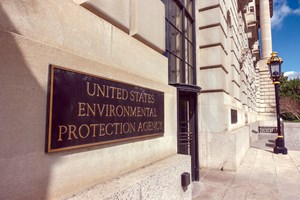EPA protects Hawaiian groundwater with illegal cesspool closures
(UI) – The U.S. Environmental Protection Agency (EPA) announced a settlement with Hawai‘i Conference Foundation (HCF) to close two illegal large capacity cesspools – potential sources of harmful groundwater contamination – on the Island of Oahu and on the Island of Hawai‘i.

As part of the proposed settlement, HCF has agreed to close the two cesspools, pay a penalty, convert two single-family home cesspools to state-approved wastewater systems, and conduct a large capacity cesspool audit of all its properties within the State of Hawai‘i.
“Every cesspool closed represents cleaner groundwater, surface water and beaches for Hawai‘I,” said Amy Miller, EPA Pacific Southwest Regional Director of Enforcement and Compliance Assurance.
In July 2021, EPA inspected the North Kohala Golf Park in Kapa‘au on the Island of Hawai‘i, which is owed by HCF. During the inspection, EPA observed a building that served both as an office and equipment storage and which was serviced by two publicly accessible restrooms. The restrooms were connected to a cesspool that meets the definition of an illegal large capacity cesspool. Follow-up inquiries with HCF led to identification of a second unlawful cesspool at the Liliuokalani Protestant Church in Haleiwa, Oahu.
Under the proposed terms, HCF has agreed to close and convert both illegal cesspools to individual wastewater systems (i.e. septic tank) by June 2025 and pay a $50,633 penalty. HCF will also conduct a large capacity cesspool audit of all other HCF-owned or -operated properties within the State of Hawai’i. As part of the LCC audit, will identify any unlawful cesspools located on its properties and close them within an agreed-upon timeframe.
Cesspools collect and release untreated raw sewage into the ground, where disease-causing pathogens and harmful chemicals can contaminate groundwater.
Since the 2005 federal ban, more than 3,750 large capacity cesspools in Hawai’i have been closed; however, hundreds remain in operation. Cesspools are used more widely in Hawai’i than any other state and pose a unique challenge, as groundwater provides 95% of all water supply for the islands.
Related News
From Archive

- Glenfarne Alaska LNG targets late-2026 construction start for 807-mile pipeline project
- U.S. water reuse boom to fuel $47 billion in infrastructure spending through 2035
- $2.3 billion approved to construct 236-mile Texas-to-Gulf gas pipeline
- Major water pipe break in Puerto Rico hits over 165,000 customers
- Potomac River Tunnel project enters construction phase beneath Washington, D.C.
- Pennsylvania American Water launches interactive map to identify, replace lead water service lines
- Trump's tariffs drive $33 million cost increase for Cincinnati sewer project
- Utah city launches historic $70 million tunnel project using box jacking under active rail line
- Tulsa residents warned after sewer lines damaged by boring work
- Fatal trench collapse halts sewer construction in Massachusetts; two workers hospitalized



Comments